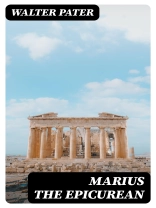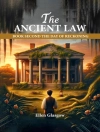Walter Pater’s ‘Marius the Epicurean’ is a richly layered novel that intricately weaves philosophy, aesthetics, and historical narrative into a unique tapestry set in the Roman Empire. Through the life of Marius, a young Roman of considerable intellect and sensitivity, Pater explores the tension between sensory experience and the moral implications of indulgence. The novel is emblematic of the aesthetic movement, marked by its lyrical prose and deep philosophical underpinnings, inviting readers to ponder the complex interplay of pleasure, knowledge, and human existence in a rapidly changing world. Pater’s use of vivid imagery and meticulous detail enriches the narrative, transforming Marius’s journey into a profound meditation on the nature of beauty and the pursuit of a meaningful life amidst the ruins of Rome. Walter Pater, a prominent figure of the late 19th-century literary scene, was deeply influenced by his scholarly background and philosophical inquiries, particularly those focused on Platonic and hedonistic thought. His education at Oxford fostered a keen appreciation for culture and aesthetics, which profoundly informs ‘Marius the Epicurean’. Pater’s critique of Victorian norms and exploration of individualism significantly reflect the broader intellectual currents of his time, providing context to understand Marius’s quest for a transcendent existence. For readers seeking an intellectual journey interwoven with artistic and philosophical themes, ‘Marius the Epicurean’ is an essential read. It not only serves as a remarkable historical novel but also as a deep exploration of the human condition, the pursuit of joy, and the philosophical underpinnings that shape our understanding of life. Engaging with Pater’s work encourages reflection on the enduring conflicts between pleasure and duty, making it particularly relevant for contemporary readers.
Об авторе
Walter Horatio Pater (1839–1894) was a noteworthy English essayist, literary and art critic, and fiction writer who played a significant role in the Aesthetic Movement of the 19th century. Best known for his seminal work ‘Studies in the History of the Renaissance’ (1873), Pater’s examination of the Renaissance period combined rigorous scholarship with an elegant prose style that encouraged readers to appreciate art for its own sake, an approach that encapsulated the Aesthetic credo of ‘art for art’s sake.’ His novel ‘Marius the Epicurean’ published in 1885, further solidified his reputation. This philosophical narrative follows the intellectual journey of its protagonist, Marius, as he explores the sensory experiences of life and engages with various philosophical schools in the Roman Empire. Pater’s narrative technique in the novel, characterized by a rich, descriptive language and introspective focus, offers readers a nuanced exploration of Epicurean philosophy and the human condition. Pater’s works have been influential in literary circles, resonating with and influencing figures such as Oscar Wilde. Pater’s emphasis on individualism and subjective experience was a precursor to the aestheticism and modernist literary movements that followed. His exploration of hedonism, beauty, and the fleeting nature of experiences continue to stimulate scholarly discourse and literary analysis.












